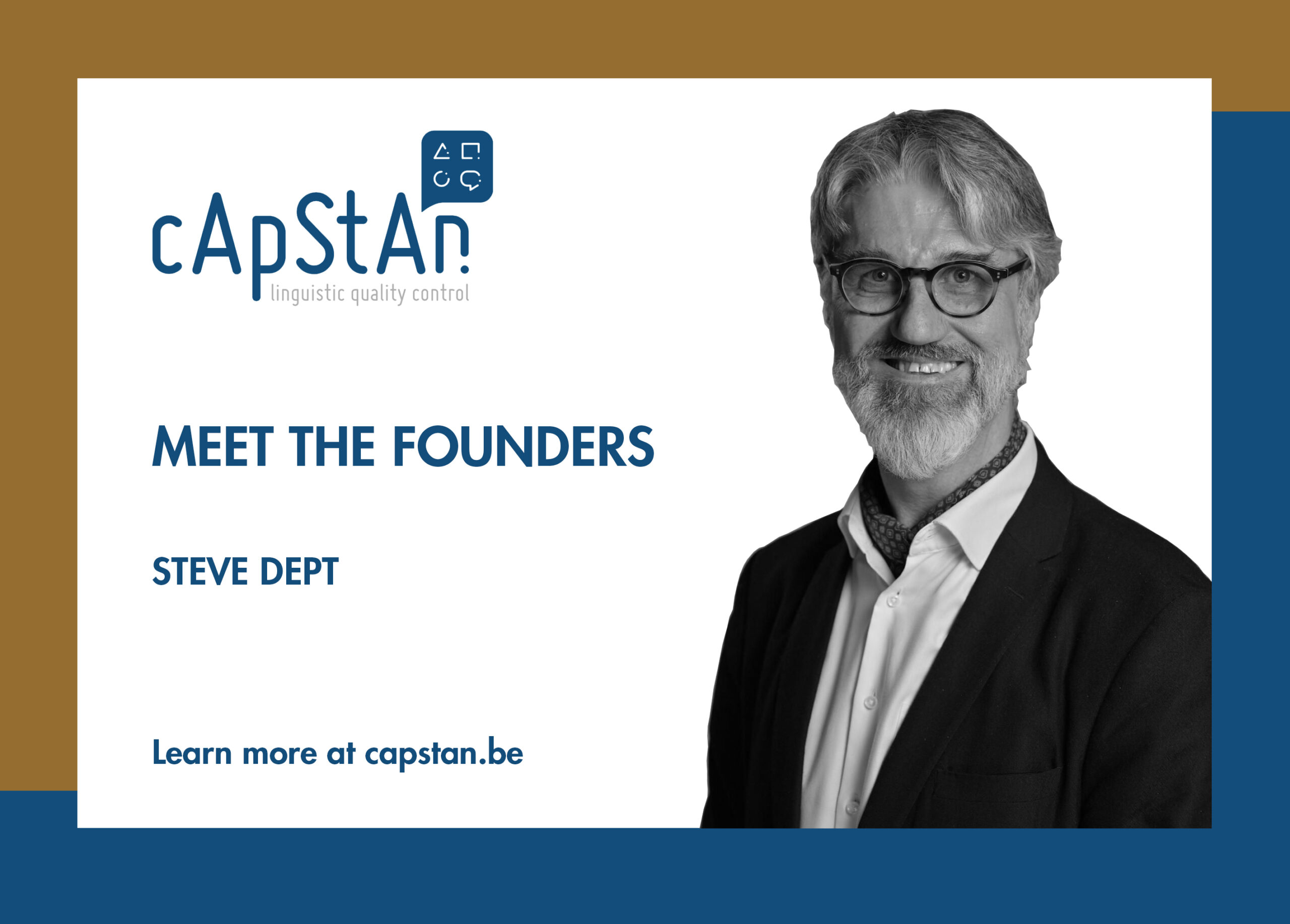
“What it takes to build a boutique language solutions provider: a cApStAn founder nails it”
Founders of boutique language solution providers are often overrated and cApStAn is a case in point in this regard. I am Steve Dept, a linguist by training—though not a translator—and a polyglot, initially because my parents travelled a lot: before the end of secondary school, I had attended 14 schools in 4 different languages. While attending German and English schools in South Africa, my parents insisted that I follow French courses remotely (in the seventies, “remotely” had a different connotation than today, as you can see on the illustration).

After studying linguistics to give my early language acquisition a theoretical underpinning, I learned more languages out of interest and happenstance. Then I ran a modest translation agency (who remembers what a dongle is?) mainly because academic research seemed too ponderous for my level of energy. A combination of mentorship, serendipity and recklessness gave me the initial drive to set up cApStAn with Andrea Ferrari.
The serendipitous component is that the University of Liège, one of my clients in the late nineties, had a department[1] that analyses systems and practices in Education, and that this department was part of the first consortium selected to implement the OECD’s Programme for International Student Assessment, aka PISA. The mentorship component is the trust that researcher Aletta Grisay placed in me before I had garnered any credentials worth mentioning. I was working on guidelines for reviewers of scientific translations at the time, and she suggested that I should be involved with her in developing a methodology to assess linguistic equivalence across different language versions of PISA instruments. The reckless element is that I accepted, barely realising how much upskilling (and a lot of trial and error) would be needed to achieve this.

Andrea Ferrari and Aletta Grisay in January 2002
The early days were as challenging as they were promising. The constructive criticism from partners, from research institutes and peers helped us slide the cursor from the ‘we do what we are good at’ paradigm towards the ‘we experiment with novel approaches’ attitude, always with a view to generating better outputs, more relevant feedback and actionable reports. During the first ten years of cApStAn, everyone did everything, from terminology management to training linguists, from contract management to reviewing linguists’ feedback, from testing new technology to analysing data. What I remember from those days is the effort we put in trying to harmonise the way linguists reported the issues they detected when verifying translations. The picture shown here dates back to 2005.

cApStAn grew thanks to the dedication, creativity and grit of the entire team. In very much the same way as I tried to outperform myself to be worthy of the trust that was placed in me, I trusted my colleagues and they all went an extra mile to demonstrate that we had found a winning combination.
[1] Formerly Service de Pédagogie Expérimentale (SPE), now Unité d’analyse des systèmes et des pratiques d’enseignement (aSPE), Université de Liège (ULg).